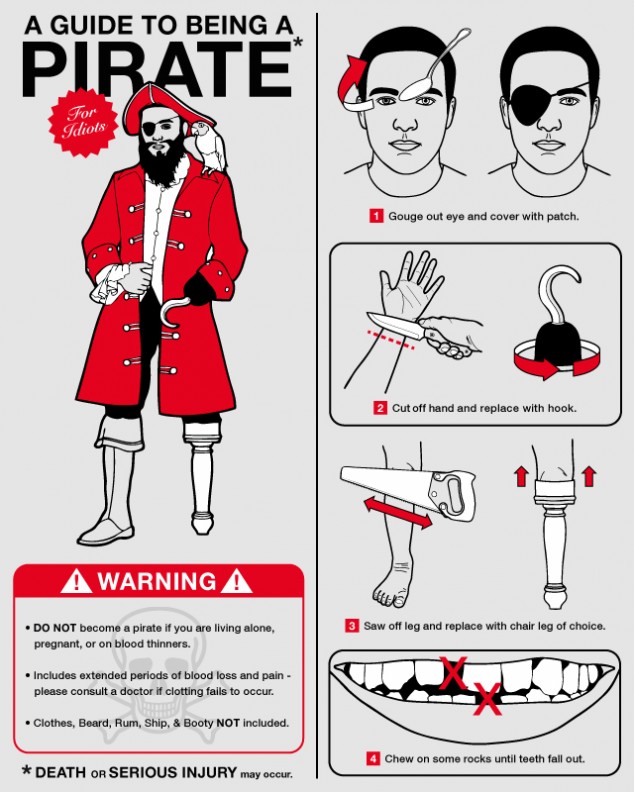What a fortnight it has been for the outdoor advertising industry. Never has religion won them so much mainstream media coverage. Well. Not since the last atheist outdoor advertising campaign in the states.
Here’s the thing. From an advertising perspective, campaign wise, billboards are a pretty rubbish way to do things. If you have a $10,000 budget for a campaign just about the last thing you want to do with it is hire a billboard. You could phone the number of people who will care about your billboard for less than that cost. Billboards are good as part of an integrated media campaign, and they are an especially good way to get media coverage if you put up something outlandish. In fact, the only reasons I’d ever advise using a billboard (and ever have in the past) is a) if it’s free. Like a prize, or some sort of in kind deal with the billboard company, b) if you’re selling high volumes of low value impulse products (like a chocolate bar or a soft drink – Coke reckons if you see their logo six times in a day you’ll buy a bottle), c) if you’re saying something incredibly outlandish and you want to generate media coverage.
This last option is where my interest lies, and in the last few weeks (well months) there have been some interesting case studies in outdoor advertising from religious groups that have become mainstream media stories.
PR companies calculate the value of their marketing efforts using a metric called “equivalent advertising value” or some multiple of the advertising value to get equivalent exposure. I think this method is bollocks, but it can be hard to quantify the value of PR. You can ask why in the comments. It’s not really worth going into.
First cab off the rank was the hugely successful rapture readiness campaign that probably received, in EAV terms, significantly more than the initial advertising spend globally. Billboards don’t come cheap. But neither does TV air time, and this billboard campaign was getting a story an outlet per bulletin for days leading up to the event on broadcast media and features pre-and-post. All because this guy bought some billboards. That’s what you want when you buy billboards. People to notice, to talk, and for buzz to start. That’s why billboards, generally speaking, are more shocking than other ads. You only see them for short bursts so they have to grab you, but they also need to be newsworthy if you want maximum exposure. This is why the push to get g-rated ads is bound to fail, eventually, because shock value is so intrinsic to the medium (we’ll talk more about the ACL below).

Some people would say this billboard is offensive because of its use of Papyrus and the fact that the guy in silhouette looks like he’s constipated. But the message got cut through because it was such an outlandish claim, and because the guy buying them had spent so much money. But you don’t have so spend millions of dollars not talking about Jesus to get media coverage for your religious billboard.
You can also, as it turns out, make claims about Jesus that shock people. Especially if you’re Islamic. And you claim Jesus as your prophet. One wonders if most Muslims have stopped to read what Jesus claims about himself in the Bible which would seem like a pretty natural approach to history (though the Bible is seen as an unreliable witness to Jesus’ prophecy, or so I’m told). So this billboard campaign offers interesting opportunities to have that conversation (see DavidOuld.net for how that might work). But not all Christians view the billboard this way. Evidently. Because some clown tried to tear it down. Which would be a masterstroke of media manipulation if it ended up not being a Christian who did it – because again, a controversial advert, with a controversial follow up, is gold for newspaper editors everywhere. And represents value for money for the advertiser.

Generally speaking, I’m a fan of freedom of speech, which means I am naturally opposed to censorship. Not viewing guidelines. But the prevention of ideas being able to be freely transmitted. Some ideas are criminal, and transmitting them is worthy of being locked up. But as a general rule people I disagree with should be allowed to advertise their messages. Because that’s consistent. The playing field is level. I hate the idea that we are a “Christian country” so therefore other religions shouldn’t be allowed to advertise. It’s wrong on about eight levels. Well. Two. We aren’t really a Christian country, and even if we were, that shouldn’t stop us letting minorities have a voice. There’s censorship of ideas, which is bad because liberty is good, and there’s restrictions on liberty for the sake of not hurting others. Which is good, because hurting others is bad… which brings me to the big gay controversy…
Two people. Cuddling or engaging in foreplay. Necking. Condom in hand, lowered suggestively towards groin. Clothed. The words rip and roll displayed prominently.
Safe sex message or not, I think you’d have a hard time convincing most people that the above scene is “G Rated”… it’s simply not. The subtext is clear. And while being “G Rated” is framed as being about children, it’s really not. It’s about protecting people from things that offend them in public places. I don’t think you need to worry about protecting people from things that offend them where they have a choice to turn off. But a bus stop doesn’t present you with that sort of choice. So even if the subtext goes over the heads of children, which I think it probably does, and even if the message of that ad is important, and it is. I don’t think a bus stop is the place for it.
Wouldn’t it be great if we had somebody out there fighting for G-Rated outdoor advertising.
Oh wait. We do.
The Australian Christian Lobby.
I’ve said before that I’m not really a fan of the Australian Christian Lobby. I’m not a fan of their approach to church and state, to morality, to the fundamental assumptions they have about what is a good witness to people, what will change behaviour, and how Christians should contribute to society. But I could support them on the outdoor advertising thing. I really could. But in this case. Their message is lost. And the advertisers win again. Because the Australian Christian Lobby’s Wendy Francis has a track record of being “homophobic” – thanks to an ill-advised tweet while she was running for Family First. I use the quotes there because she’s not actually homophobic, but rather is said to be. I don’t think she’s scared of gay people, I just don’t think she knows how to approach the issue of homosexuality in public from a Christian perspective. For more on homophobia and a Christian response to homosexuality you should read Brad’s post. I’ve written a couple of things about a Christian approach to gay marriage too.
The problem with the ad described above is that it features two males. Which meant that rather than being about “G Rated Advertising” this was always going to play out as a Christian Lobby Group being homophobic gay haters. “They’re not just scared, they don’t want gay people in the public eye.” That is how the response played out. It was like watching a car crash. And it has made this campaign, and this billboard, one of the most talked about advertising campaigns in Australia at the moment. One of the most talked about topics. And Wendy Francis and the Australian Christian Family First Lobby played right into their hands. Poe’s Law says Christian fundamentalism will be indistinct from Christian satire, and if the ACL hadn’t complained about the billboards the company behind them should have started a Christian satire organisation and complained. It was predictable. It was geared perfectly to not be outrageous and be outrageous at the same time. The company behind the campaign said:
In designing this advert to appear in general settings we were careful to ensure:
- the models are fully clothed
- the picture does not depict or imply a specific sex act
- there are no rude or offensive words used
- the men are depicted in a non-discriminatory way
While this might be true, I’d still suggest that the ad wasn’t G Rated, and therefore isn’t suitable for outdoor advertising, which should be designed to accommodate the twin poles of freedom of speech and reasonable protection of people (including children) from offense. This was an ad designed to evoke a response. Rip’N’Roll is provocative. I don’t think you can dodge that. Be it describing condom use, or the situation in which such use arises, it is clearly not family friendly.
But the real clincher, and what must have had the company rubbing their hands together with glee was the way the story unfolded. Adshell, the company responsible for the ads, pulled them (strategy anyone?), as a result of a “grass roots” campaign from ACL supporters, possibly in response to this Facebook update from Wendy Francis (that again sails close to the “homophobic” wind – it is clear the two males are an issue, despite what she might have said to Sunrise this morning).

This prompted an outcry. A hoard of angry men and women descended on the ad company waving placards featuring the picture from the ad. This made the news. Politicians got involved. Twitter erupted. The model in the photo chucked a tantrum throwing emotive language around. The billboards are now back up and everybody wins. Except the ACL. Whose important campaign about Outdoor Advertising standards is doomed to failure because they’ve got some idiot idea that talking about your opponents campaign and marketing message is somehow going to get it less attention.
If you get a bad review from the media you shut up. You don’t show all your friends. You don’t fan the flames. You wait for the hubbub to die out. Why bring attention to somebody else’s story. The better move from the ACL would have been to take photos of the billboards and interview people catching buses from the bus stops in question to build a case against non G rated outdoor advertising. But they’re all about pigheaded tenacity in every battle. And not about the war. And apparently about as interested in talking about Jesus as Harold Campling. How can a “Christian Lobby” bang on about stuff so much saying so little about what it means to be a follower of Jesus. You get a free hit on national television on a popular breakfast show and you paint us all as moralising potentially homophobic wowsers. Why not talk about Jesus, even if it’s linked to what Jesus said about marriage and sexuality.
The more we get distracted on the little things, and the more our reputation is built on the way we deal with the little things, the less people listen to us on the big ones. It’s interesting to me that while a guy like Wilberforce was obviously motivated by the gospel, and a passionate witness for Christ, the good deeds he did are in some sense kept separate from that. I can’t ascribe motives to the guy. I don’t know what he was thinking. But I like that things like the RSPCA and the abolition movement, while motivated by his faith, had their own identity. While I think the outdoor advertising campaign is a good thing for society I’m not sure it needs a “Christian” stamp. Maybe we’d be better served if we weren’t creating confusion between what Christians are on about (Jesus hopefully) and what people interested in morality (Christians included) are on about. We don’t want our good deeds to be separated from our motivations – but we don’t want them to cloud the gospel either. That needs to be clear.
We’re Christians because we love Jesus, not because we don’t like other people putting safe sex messages on billboards. Even the Muslims want to talk about Jesus. And we can’t get it right.
That is all.


















